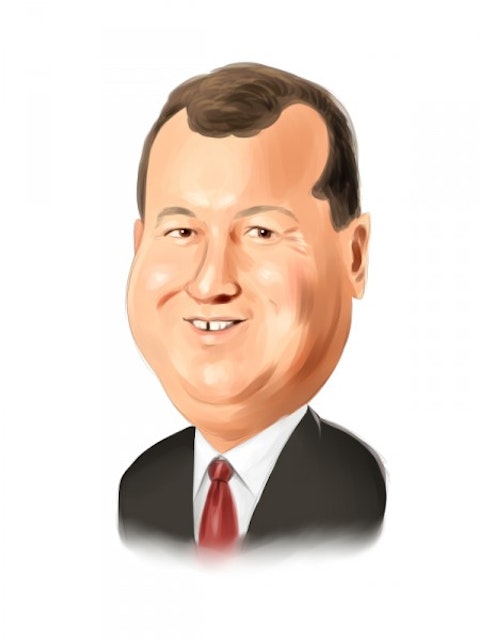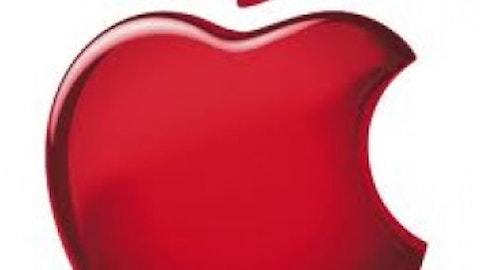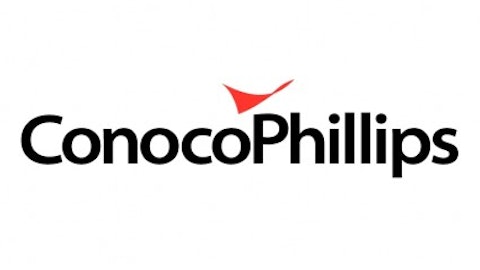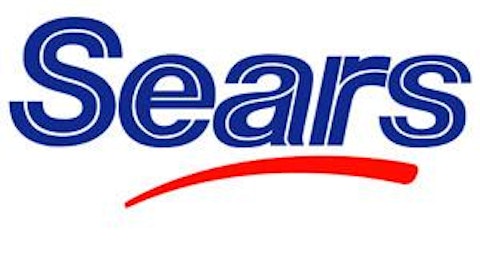Albert Einstein famously defined insanity as doing the same thing over and over again, but expecting different results. You could argue then, compellingly, that a significant percentage of management teams aren’t right. They continuously churn out average results — employing remarkably similar strategic mandates, chasing prices lower as they grab for market share, and generally speaking, doing the same things — and wonder why. A particularly crazy lot, by this measure, are property and casualty (P&C) insurers. Plagued by continuous cyclicality (of its own doing) and cutthroat competition, the P&C insurance industry’s historical returns have been average at best.
For copycat capitalism’s prevalence, Markel Corporation (NYSE:MKL) — a self-styled baby Berkshire Hathaway Inc. (NYSE:BRK.B) — stands apart. Management’s grown book value per share at an astounding 16% rate for 20 years running, on the strength of savvy underwriting and decades of market-beating investing by CIO Tom Gayner. But despite management’s history of value creation, a strange thing has happened.

Concerned the recently completed $3.5 billion acquisition of Alterra, a specialty insurer and reinsurer, won’t deliver the goods, Markel Corporation (NYSE:MKL) shares trade at 1.1 times book value. The market’s valuing Markel as the unwashed masses, as if management will create little to no value despite its superlative track record. This alongside several near-term catalysts — the transformative potential of the Alterra deal, hardening underwriting markets, and Markel’s increasing ability to compound shareholder value — provides a compelling opportunity for would-be buyers.
That, friends, is why I’m buying a position in Markel Corporation (NYSE:MKL) equal to 3% of my Real Money Portfolio.
Insuring profits
Dubbed an insurer, Markel is better thought of as three separate, but related, businesses: Insurance, Investments, and Markel Ventures. Unifying these segments is the “Markel Style,” a set of organizational values emphasizing integrity, effective capital allocation, and thinking differently. It has perhaps been best captured by Steve Markel, vice chairman, at the Markel annual shareholder breakfast in May 2013: “Executives shouldn’t get paid bonuses if shareholders aren’t doing well.” Rubber meets the road in executive compensation: Bonuses are tied to the five-year average growth to book value per share, a key measure of shareholder wealth accrual.
Core to the Markel enterprise is a near-religious emphasis on underwriting profits. That sounds stupidly obvious, but in practice, it’s less common. Insurers chase market share in good times, which eventually gives way to losses. More surprising: Many insurers consciously run losses on their underwriting operations and hope to make it up on investment returns. (Because insurance companies are paid premiums up front, profitable underwriting operations provide a costless, sustained source of investable cash, called float.) The trouble is, they’re often poor investors, so they lose twofold. The collective’s returns on capital are uninspiring, to say the least. Markel is unique. It’s good at both: insuring, and investing.
Insurance: Given a statistical software package, a few quants, and a lump of cash, insurance seems easy. But if the industry’s history is indicative, pricing risk isn’t a pure science. Underwriting profits are easy-come, easy-go. Moreover, it’s really competitive, and barriers to entry are nil. Edison’s blinding intelligence isn’t a pre-requisite to figure: A generic underwriting strategy is a loser’s game.
Understanding this, Markel Corporation (NYSE:MKL) management’s historically focused on niche, quirky markets — called excess and surplus (E&S) lines and specialty. A few examples: summer camps, bass fishing boats, and blacksmiths. In these segments, unique knowledge and limited market size limit competition, make pricing more stable, and make underwriting profits more consistent. That’s not to say they’ve escaped the inexorable underwriting cycle, but it’s a bit more palatable. For the 10 years to 2012, Markel’s lost money on its insurance operations only twice, despite record catastrophe losses and sustained pricing weakness.
| 2012 | 2011 | 2010 | 2009 | 2008 | 2007 | 2006 | 2005 | 2004 | 2003 | |
|---|---|---|---|---|---|---|---|---|---|---|
| Combined ratio | 97% | 102% | 97% | 95% | 99% | 88% | 87% | 101% | 96% | 99% |
With the recently completed Alterra deal, Markel Corporation (NYSE:MKL)’s premium volume will nearly double, and its footprint will change from one emphasizing E&S and specialty to E&S, specialty, large corporate accounts, and reinsurance. While large corporate accounts, in the right hands, offers returns and market dynamics similar to E&S, reinsurance is a much tougher lot. Competition is widespread, and when they occur, catastrophe losses are enormous. Further complicating things, hedge funds and other non-traditional vehicles have recently flooded the marketplace in search of “easy cash.” That’s made an already commoditized marketplace worse.
Investments: For any and all known life forms, carbon is the building block. But it’s nitrogen that grows and sustains. Likewise, while insurance is at Markel’s core, its investments have enabled growth. Lead by CIO Tom Gayner, a colorful and thoughtful character, Markel’s returns and process closely resemble those of the Oracle himself, Warren Buffett. Perhaps more than anything, the results tell the tale: a 10% annualized return for 20 years, versus 8% for the S&P. In Markel Corporation (NYSE:MKL)’s investments, Gayner seeks four qualities: honest and talented management, a well-fortified competitive advantage, a reasonable price, and the ability to sustainably (and profitably) reinvest excess cash flow.
Yet again, the nuances separate Markel from the masses. Where most insurers allocate the bulk of their investments to bonds, Markel invests up to 80% of its book value in stocks. Successfully executed, this tactical maneuver provides the wherewithal to supercharge growth in book value per share. And for Markel shareholders, it’s done just that.
Markel Ventures: As Berkshire Hathaway Inc. (NYSE:BRK.B) in its infancy, Markel has established a sidecar venture called Markel Ventures. It’s something like a private equity firm, but with permanent capital. Like Berkshire Hathaway Inc. (NYSE:BRK.B), Markel’s modus operandi in Markel Ventures is to find solid businesses whose owners are seeking a source of liquidity and a stable and well-capitalized partner, while retaining the ability to manage his/her enterprise on a laissez-faire basis. Right now, its investments span such far-flung enterprises as specialized baking equipment, barges, and concierge medical services.
These are ultra-long-term investments. As its stock investments, Markel’s management is seeking that quadfecta. They want businesses with unique moats, fortified market positions, and long growth ramps. And they want to invest behind them, for the long term. As it stands, Markel Ventures is a relatively small part of the Markel Corporation (NYSE:MKL) enterprise, generating $60 million EBITDA last year. But given a long view, the potential is positively enormous. Remember how Berkshire Hathaway Inc. (NYSE:BRK.B), at its inception, was just a wee textile mill?
Why Markel, today?
For its very attractive long-term characteristics, a few catalytic elements in conjunction with a historically cheap valuation conspire to make Markel shares an eye-catching investment today: the transformative potential of the Alterra acquisition, strengthening insurance markets, and the compounding potential of a mini-Berkshire.
Alterra firma: I have a decidedly dour opinion of the reinsurance biz, which comprised roughly half of Alterra’s premium volume and will represent about 20% of the combined entity. It’s competitive, losses can be staggering, and save players of scale — a la Berkshire Hathaway Inc. (NYSE:BRK.B)’s GenRe — it’s hard to write business on good terms.
But the Alterra acquisition accomplishes several very important ends: a larger market presence, increased investments per share, and the potential to juice Alterra’s investment portfolio returns. And for the scrappy, competitive corners of the market it’s inhabited, Alterra’s historical results are quite impressive: It’s consistently generated underwriting profits despite record catastrophe losses. Acquired at book value, that’s not such a bad deal.
For an insurer, particularly of Markel’s ilk, opening market opportunities is doubly important: Premium growth expands its pool of investable funds, and multiplicatively increases the potential for book value growth. To wit: Markel Corporation (NYSE:MKL)’s investment leverage (investments divided by book value) increased from 2.4 to 2.6 with the deal’s completion. Not to be ignored, the bulk of Alterra’s investment portfolio was deployed to bonds. As Gayner shifts it to stocks, and returns increase, shareholders should reap the benefits.
Snowball gaining mass: Among the more beautiful, elegant, and oft-repeated elements of a well-functioning insurance company is its ability to compound value via the combination of underwriting profits and savvy equity investments. As noted above, for Markel, the Alterra deal secures its ability to grow book value. Simple math paints a pretty picture: At 2.6 times investment leverage, a mere 4% after-tax return on its investments can grow book value at a 10% clip.
With that, Markel’s ability to compound book value at a mid-teens rate of growth for two decades running suddenly becomes much less mysterious. Should its underwriting profitability begin to approximate the past decade’s results, Markel Corporation (NYSE:MKL) can easily compound book value at a double-digit clip for years to come. That would be very good.
Hardening markets: The past eight years have been a hard slog for P&C insurers. Plagued by excess capacity, the industry’s wily-nily approach to risk, and American International Group Inc (NYSE:AIG)‘s seeming willingness to write any business at any price (until recently), prices languished, increasing at below-market rates for seven years running. In things obvious: That’s a categorically unsustainable condition. In other things seemingly apparent: Insurers are in a tough spot, because in the long run, they need to earn a profit on their book. Low interest rates, which have compressed returns on bond portfolios, only exacerbated the pain for insurers.
That’s come with a silver lining: Insurers are finally starting to come around. Prices are firming, and according to insurance analytics firm Verisk Analytics, Inc. (NASDAQ:VRSK), the P&C lot collectively earned an underwriting profit for the first time in years in Q1 of 2013. If we’re to give effect to the pricing lag of years past, rates could still increase as much as 20%-30% in the next few years.
Ensuring returns
As it stands, Markel shares are priced to deliver 4% on its investment portfolio and break even on an underwriting basis — in perpetuity. That’s silly. Viewed against management’s record, I doubt that will be the case. The combined Markel-Alterra wrote $4.4 billion worth of premium last year. As a guppy in a large pond, Markel’s pint-sized underwriting footprint and specialty focus play to its advantage, allowing the company to write good business, grow, and maintain its underwriting standards.
Looking ahead, I expect Markel will generate combined ratios in the vicinity of 96%-97% — a 3%-4% pre-tax margin on its insurance operations — with a bit of volatility, courtesy of Alterra’s reinsurance book. I also expect the special sauce that’s fueled Markel’s investment portfolio to keep kicking. I estimate its equity portfolio will deliver 7%-8% annualized returns and its bond portfolio to normalize around 4%-5% as interest rates eventually recover. On this basis, I peg the shares’ worth at $750. Not bad for a sleepy insurer.
What would worry me
Because insurance companies agree to replace a good if damaged, lost, or destroyed, unexpected inflation can hit earnings hard. While that’s a risk, Markel Corporation (NYSE:MKL)’s management contemplated this possibility, and claims to have priced its book accordingly. Another risk derives from interest rates remaining low for a sustained period, in which case insurers earn less on their bond portfolios. Markel shares appear more than priced for this risk, but it bears watching.
In Markel-specific factors, I see two: First is the Alterra deal. Integrating disparate corporate cultures is a hard thing, and reinsurance isn’t a business for those with soft skin. While it appears to have been done at a fair price, and Alterra’s history is solid, I’d reconsider my investment if it turned out an unmitigated flop. Next is the state of equity markets. Because Markel has a large chunk of its net worth tied up in stocks, the state of the markets affects the company’s near and long term. In the long run, I think everything will be OK. Most significant, managing eventual succession for key leaders is essential. Insurance companies and investing organizations are only as capable as those sitting behind the desks.
Last on the list is tax policy. It may seem odd, but it matters — a lot. Markel has substantial unbooked capital gains and derives a substantial portion of its net worth and income from investments. Should rates move higher, that would ding its compounding ability. My valuation gives account to this possibility, but I’d expect the shares to take a near-term hit if it happened.
The bottom line
By my math, this baby Berkshire appears poised to deliver big profits. And today, it comes at the intersection of quality and cheap. I’m not going to let that opportunity pass.
The article Why I’m Buying Markel originally appeared on Fool.com and is written by Michael Olsen, CFA.
Michael Olsen, CFA, owns shares of Berkshire Hathaway and Markel. The Motley Fool recommends American International Group, Berkshire Hathaway, and Markel. The Motley Fool owns shares of American International Group, Berkshire Hathaway, and Markel and has the following options: long January 2014 $25 calls on American International Group
Copyright © 1995 – 2013 The Motley Fool, LLC. All rights reserved. The Motley Fool has a disclosure policy.





